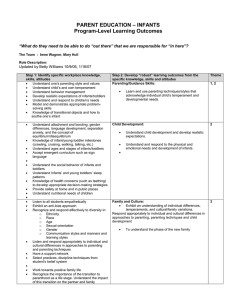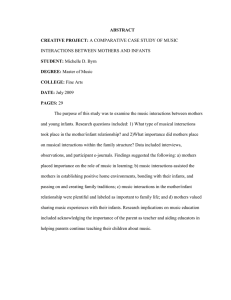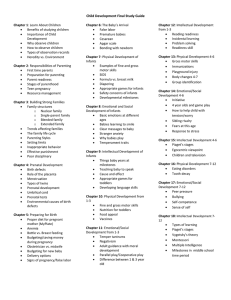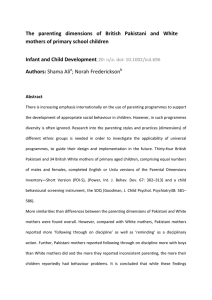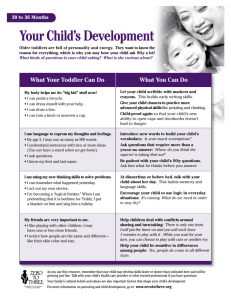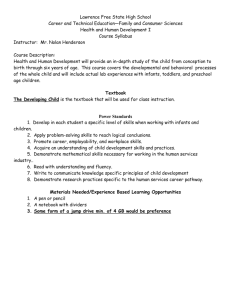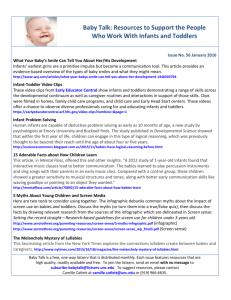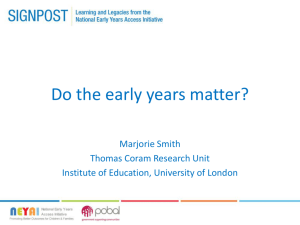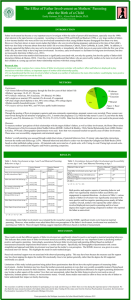Effects of Parenting Styles Through Culture
advertisement
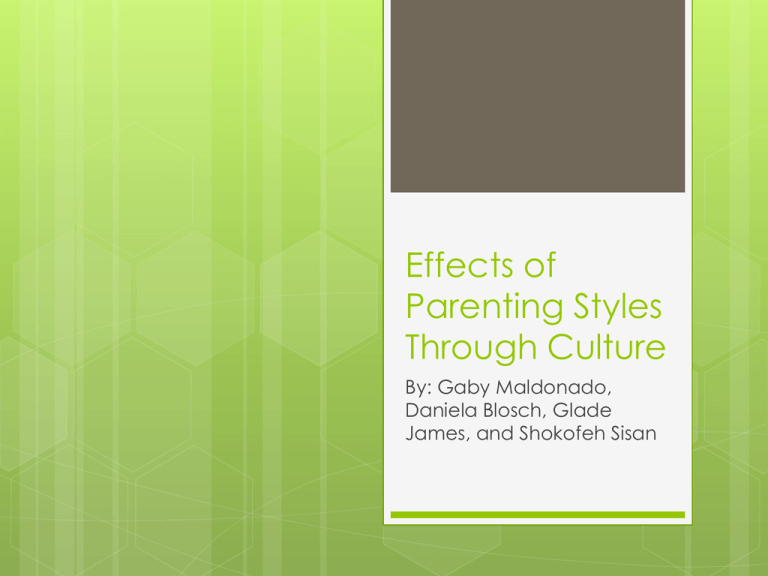
Effects of Parenting Styles Through Culture By: Gaby Maldonado, Daniela Blosch, Glade James, and Shokofeh Sisan Intro Values effect parents behavior Parents must first understand their child and then provide guidance Parenting Techniques and the Effect on Infants Through Culture Parenting patterns affect infant emotions and vice versa 7-9 months most crucial time Major bio-behavior shifts Changes take place in the frontal lobe as it becomes more involved in planning and carrying out deliberate actions Infants respond to parents expressions and actions Proximal VS Distal Parenting Proximal Parenting: Being physically close with baby, spending most time holding or touching baby Distal Parenting: Involves keeping some distance from baby but providing toys, talking face-to-face instead of communication by touch. Cameroon VS Greek Mother Study of 78 mothers and their 3-month olds Cameroon mothers constantly held child and breastfed Greek mothers used objects such as toys or bottles half the time. Developed into less self-aware but more compliant toddlers Developed into toddlers self-aware but less obedient toddlers Same test done on Costa Rican mothers and German fathers Pedagogic Model - Sigel Children learn to feel emotionally independent from parents Develop interactive skills Develop language skills Parents place infant newborns in own bed and often own room Parents High relatively tolerant of separation responsiveness to burps and hand movement as if conversational. Pediatric Model - LeVine Protecting health and survival of infant Mothers and infants sleep together Respond rapidly to crying Don’t view infants as capable of communication or understanding language Don’t engage in face to face interactions Result in North Americans Become more talkative and active children Experience high peaks of excitement, higher levels of arousal Become stimulus seeking Learn to cope with being alone Possible differences in brain structure due to more stressful events Result in Kenyans Cry less as infants Become quiet children When older are respectful and selfdisciplined http://www.youtube.com/watch?v=1v upEpNjCuY

